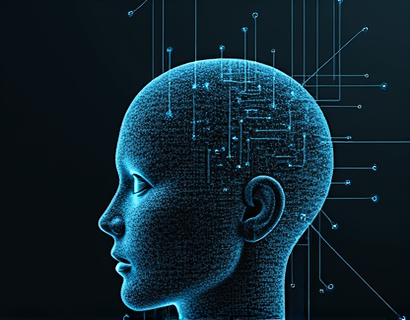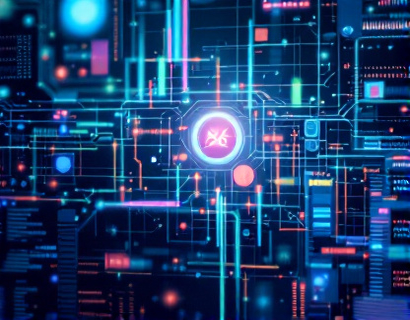Decentralized Organization Dynamics: Unlocking Optimal Collaboration and Efficiency with Advanced Software Solutions
In the rapidly evolving landscape of organizational structures, decentralized organizations have emerged as a compelling alternative to traditional hierarchical models. These organizations leverage distributed networks and peer-to-peer interactions to achieve their goals, fostering a new paradigm of governance, collaboration, and efficiency. This comprehensive guide delves into the transformative impact of advanced software solutions in building universal decentralized organizations, focusing on enhancing key aspects such as governance, collaboration, transparency, and efficiency. For enthusiasts of decentralized systems, understanding how software can unlock the full potential of these organizations is crucial.
Understanding Decentralized Organizations
Decentralized organizations operate on principles that starkly contrast with centralized entities. Instead of a single point of control, decision-making is distributed among network participants. This distribution is facilitated by blockchain technology and smart contracts, which ensure that transactions and governance processes are transparent, immutable, and tamper-proof. The core advantage of this structure lies in its resilience to failures, reduced risk of manipulation, and enhanced trust among participants.
The dynamics of decentralized organizations are governed by a set of protocols and rules encoded in smart contracts. These contracts automate and enforce agreements, reducing the need for intermediaries and minimizing conflicts. The decentralized nature ensures that no single entity has monopolistic control, promoting a more equitable and democratic decision-making process. This setup is particularly beneficial in environments where trust is scarce, and traditional authority structures are either absent or ineffective.
Enhancing Governance through Advanced Software
Effective governance is a cornerstone of any successful organization, and decentralized systems are no exception. Advanced software solutions play a pivotal role in enhancing governance by providing tools that facilitate transparent, fair, and efficient decision-making. One of the key features is the implementation of on-chain governance mechanisms, which allow stakeholders to propose, discuss, and vote on proposals directly on the blockchain.
These mechanisms ensure that all decisions are recorded transparently and cannot be altered retroactively. The use of liquid democracy and delegated governance models further empowers participants by allowing them to delegate their voting rights to trusted representatives, streamlining the decision-making process without compromising on decentralization. Advanced software can automate these processes, reducing human error and increasing the speed and reliability of governance outcomes.
Fostering Collaboration in Decentralized Environments
Collaboration is another critical aspect where advanced software significantly enhances the capabilities of decentralized organizations. In a decentralized setting, collaboration transcends geographical boundaries and organizational silos, enabling a more diverse and dynamic pool of contributors. Platforms built on decentralized principles leverage blockchain-based identity verification and access control to ensure secure and seamless collaboration.
Project management tools, such as decentralized task boards and collaborative document editing systems, are designed to work seamlessly within the blockchain ecosystem. These tools enable real-time collaboration, version control, and transparent tracking of progress. The immutable nature of blockchain ensures that all contributions are recorded and attributed correctly, fostering a culture of accountability and trust among collaborators. Additionally, the use of decentralized finance (DeFi) protocols can facilitate reward mechanisms that incentivize participation and contribution, further enhancing collaborative efforts.
Ensuring Transparency and Trust
Transparency is a fundamental value in decentralized organizations, and advanced software solutions are instrumental in maintaining this transparency. Blockchain's inherent transparency ensures that all transactions and interactions within the organization are visible to all participants. This visibility builds trust, as there is no room for hidden agendas or unauthorized changes. Smart contracts, in particular, play a crucial role in this regard by automating and enforcing agreements in a verifiable manner.
Auditing and compliance are also simplified through the use of advanced software. Blockchain's immutable ledger provides a comprehensive and tamper-proof record of all activities, making it easier to conduct audits and ensure compliance with regulatory requirements. This level of transparency not only enhances trust among stakeholders but also reduces the risk of fraud and errors, contributing to the overall efficiency and reliability of the organization.
Boosting Efficiency through Automation and Optimization
Efficiency is a key driver for the success of any organization, and decentralized systems benefit greatly from advanced software that automates and optimizes processes. Automation of routine tasks through smart contracts reduces the need for manual intervention, minimizing errors and freeing up resources for more strategic activities. This automation extends to financial management, where DeFi protocols can handle transactions, payments, and even complex financial instruments in a secure and transparent manner.
Optimization tools powered by machine learning and data analytics can analyze vast amounts of data to identify inefficiencies and suggest improvements. These tools can monitor performance metrics, predict potential bottlenecks, and provide actionable insights to enhance operational efficiency. By leveraging these advanced capabilities, decentralized organizations can operate more smoothly and effectively, achieving their goals with greater speed and resource utilization.
Challenges and Considerations
While the benefits of advanced software in decentralized organizations are substantial, there are also challenges and considerations that must be addressed. Scalability remains a significant issue, as blockchain networks can struggle to handle high volumes of transactions efficiently. Solutions such as layer 2 protocols and sharding are being developed to address these scalability concerns, but they require further maturation and adoption.
Another challenge is the technical complexity involved in setting up and maintaining decentralized systems. Not all organizations have the expertise in blockchain technology and smart contracts, which can be a barrier to entry. Education and community support are essential in overcoming this hurdle, as they help build a more technically proficient and resilient decentralized ecosystem.
Case Studies and Real-World Applications
Several real-world applications demonstrate the practical benefits of advanced software in decentralized organizations. For instance, decentralized autonomous organizations (DAOs) have emerged as a prominent model, leveraging blockchain to manage collective decision-making and governance. One notable example is the MakerDAO, which uses smart contracts to manage a stablecoin called DAI, providing a decentralized lending platform with minimal friction.
In the realm of content creation and distribution, platforms like Audius and PeerTube utilize blockchain to create decentralized alternatives to centralized services like Spotify and YouTube. These platforms empower creators to retain control over their content and monetize it directly through token-based economies, all while ensuring transparency and fair distribution of rewards.
Future Prospects and Conclusion
The future of decentralized organizations is promising, with ongoing advancements in blockchain technology and software solutions continuing to enhance their capabilities. As more organizations recognize the potential of decentralized models, we can expect to see a broader adoption and integration of these principles across various industries. The key to success will lie in addressing the current challenges, fostering a more inclusive and technically capable community, and continuously innovating to meet the evolving needs of decentralized systems.
In conclusion, advanced software solutions are pivotal in unlocking the full potential of decentralized organizations. By enhancing governance, collaboration, transparency, and efficiency, these tools pave the way for a new era of organizational dynamics. For enthusiasts of decentralized systems, embracing these advancements is essential to stay at the forefront of this transformative movement.










































